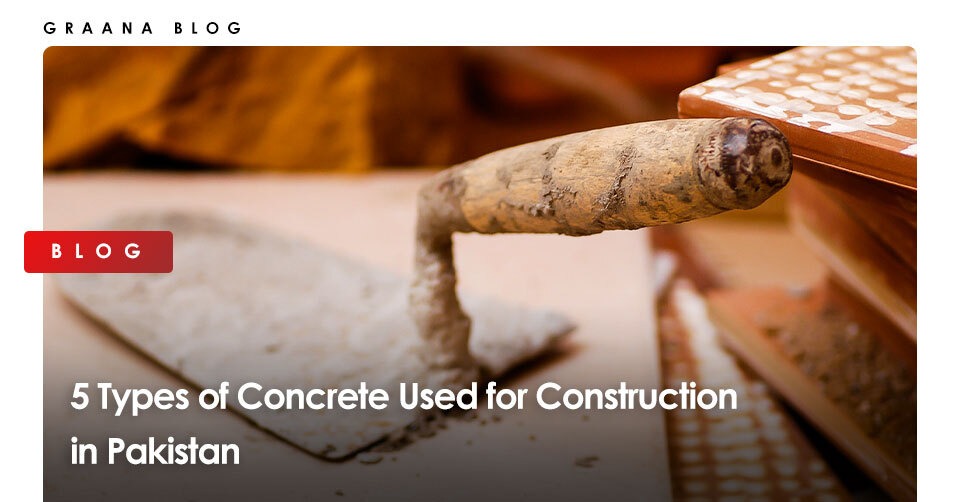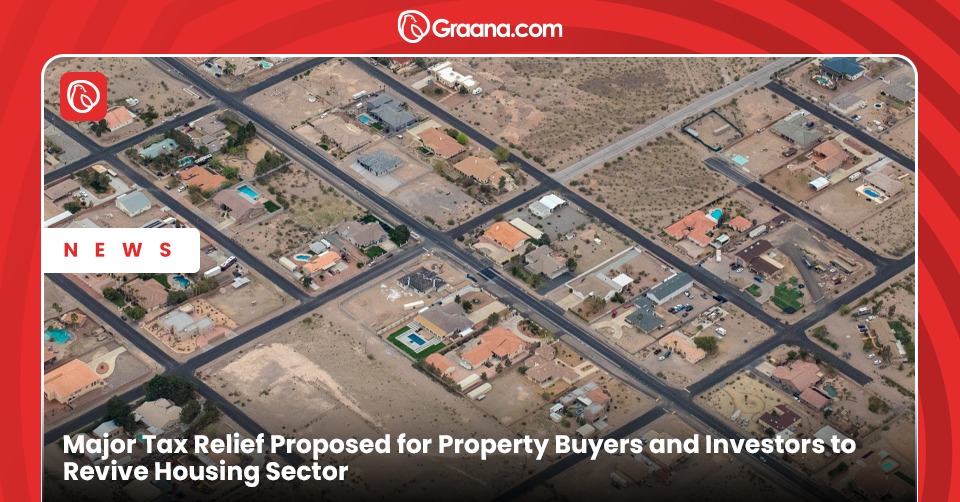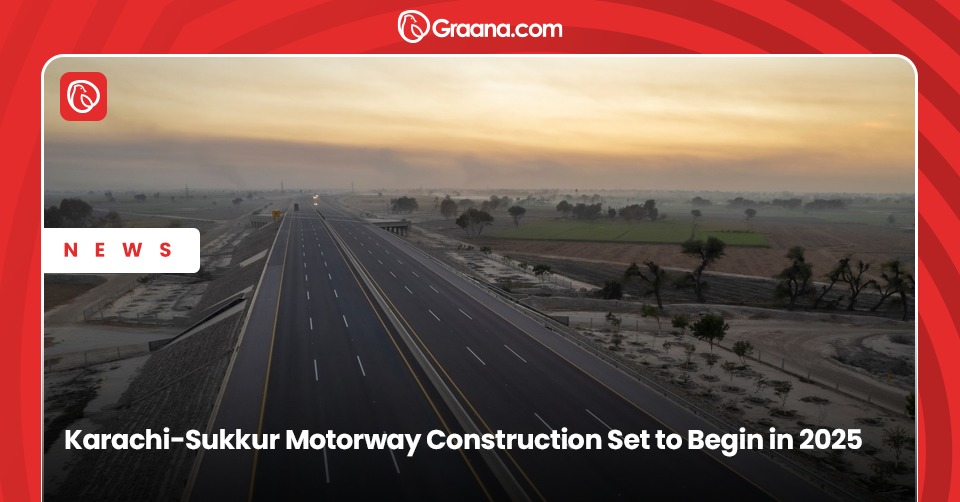Concrete is a foundational element in any construction project. It is a powerful binding material that keeps the structure intact for years to come. Ever since the invention of concrete and its usage by construction companies, the longevity of homes and buildings has increased drastically.
In this blog, Graana.com gives you an overview of some very popular types of concrete used for construction in Pakistan from amongst a wide variety of concrete.
Types of Concrete Used in Pakistan
Currently, there are multiple types of concrete being used based on their strength, texture, material, and use. If you’re looking to decide the type of concrete for your construction project, you’ve come to the right place.
We’ve collected the most common concrete types with a complete overview of their properties and applications so you can make an informed decision.
Types of Concrete |
Cement: Sand: Aggregates |
Main Uses |
| Ready Mix Concrete (RMC) | 1:2:4 | Houses |
| High-Strength Concrete | 1:1.5: 2.5 | Buildings |
| Modern Concrete | 1:3:6 | Houses/Plazas |
| Plain Concrete | 1:2:4 | Sidewalk, Roads |
| Shotcrete | 1:4 | Bridges, Ships, Repair |
Ready Mix Concrete
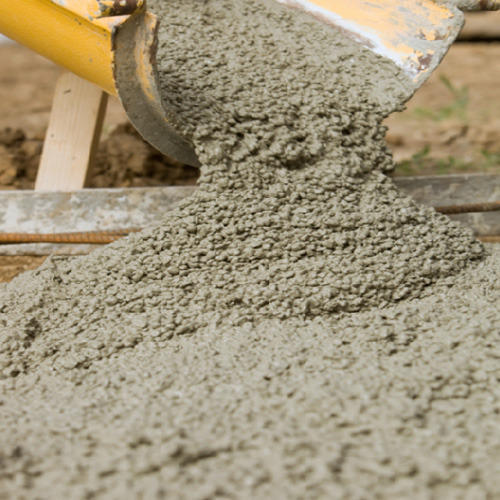
The Ready Mix Concrete (RMC) is one of the most commonly used concrete types in the country. It is manufactured in batches and produced in mixing plants, where the mixture is provided freshly mixed at the site of construction.
Since the need for mixing at the site is crucial for this, the contractor/supplier takes help from trucks designed with a barrel-like back that rotates and mixes the concrete until it becomes ready for use. These trucks are known as transit mixers.
RMC is a very useful material for not only construction, but it also helps the contractors achieve their goals in less cost and time. Due to on-site mixing and usage, the material requires comparatively less labor exertion and time.
The Ready-Mix Concrete helps to attain a very smooth and uniform texture throughout its usage. Because of the ease and convenience of RMC, it is preferred compared to traditional concrete mixing.
High-Strength Concrete
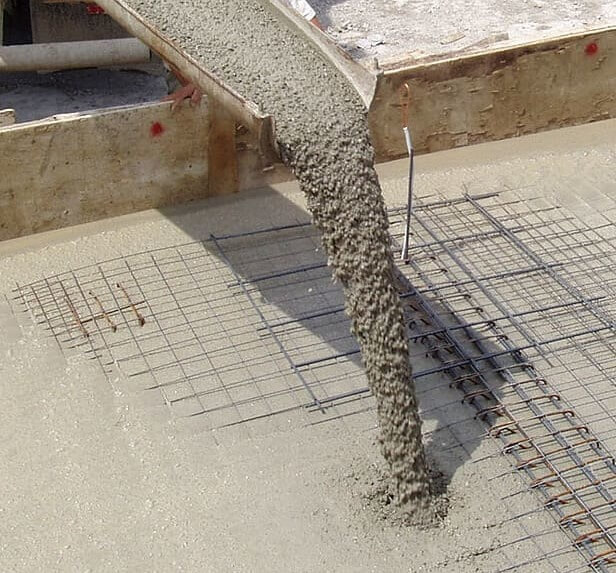
By decreasing the proportion of water in cement, you get high-strength concrete. This mixture basically uses silica fumes that help in enhancing the bonding between the structures.
This strong concrete is a very useful material but is very difficult to handle because it dries out very quickly. The trick for its smooth application and use is to add a superplasticizer, a helping chemical substance that helps with strength and easy workability.
Modern Concrete
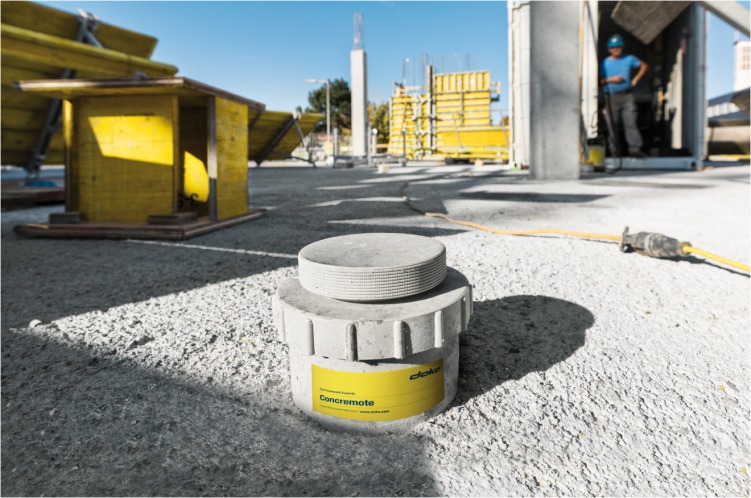
Modern concrete is a mixture prepared typically with chalk, clay, silica sand, and limestone, all combined with portland cement at high temperatures. Because of the use of rocks in this mixture by aggregating, the longevity and strength increase from that of other concrete.
In Pakistan, modern concrete is used in mainly urban structures, even though there is no limitation to its usage. Not only this, but it also serves in the production of many different concrete mixture designs.
Plain Concrete
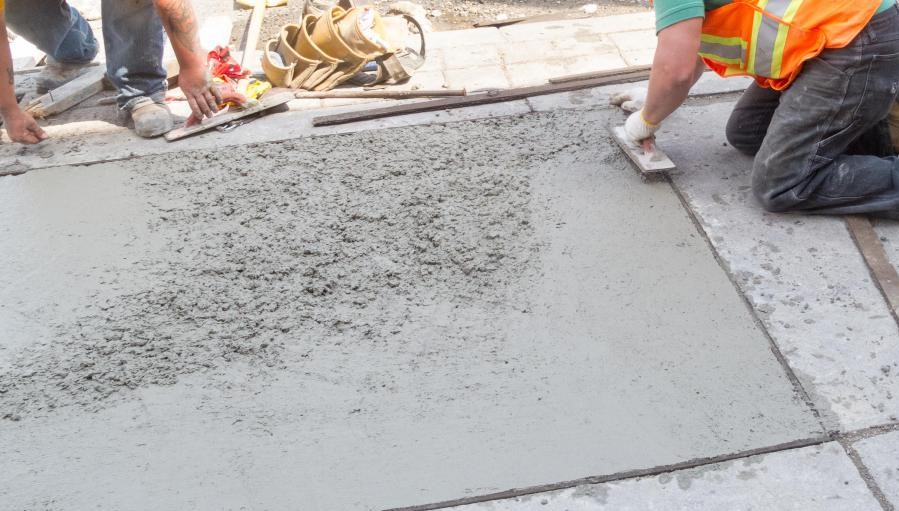
Plain concrete is typically very similar to modern concrete and is one of the most commonly and widely used concrete types in Pakistan. This type is made by combining the same materials, cement, aggregate, and water, but the proportions are however different resulting in less tensile strength.
Because of its relatively less strength, it costs lesser than other varieties of concrete and is used mainly on footpaths, pavements, etc.
Shotcrete
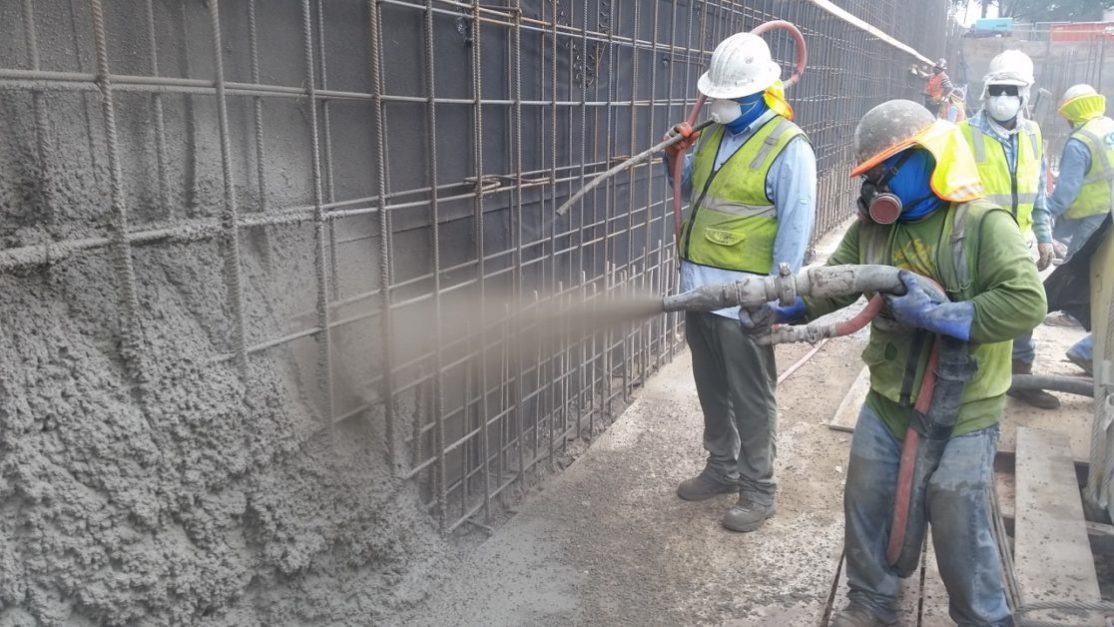
Shotcrete, as the name suggests, is actually applied with a nozzle which makes it stand out from all the other types of concrete. The mixture is filled into the nozzle and then shot with high pressure into the frame of the structure. It is an instant and solid solution especially for repairing any damaged areas and any corrosion.
It is a highly useful concrete that works in repairing building corrosion, reinstating bridge beams, repairing rail tracks, etc. Because of its fast-setting properties, it is an excellent choice for live lane repairs which will not disrupt the traffic flow.
Is Concrete the same as Cement?
There is a common misconception that cement and concrete are the same materials. Cement is actually an element that is added as an ingredient to concrete, along with other materials to aggravate the strength.
Cement is typically a mixture of portland cement and just water, and this mixture cannot be directly used because of its weak strength. Unlike cement, concrete grows stronger with its age, giving more tensile strength to tall and heavy structures for years to come.
How to Choose the Right Concrete?
So many factors chime in when you are making the decision to choose the type of concrete and materials involved in your project. It is important to consider these factors and take a thorough look at your blueprints and site before coming to a conclusion. Following are some pointers on how you can choose the right concrete.
- Know that Cement is NOT Concrete. Concrete is a mixture of cement, aggregate and water. Cement, on the other hand, is a dry material that is used with sand and water as a binding agent for concrete. Get connected with an expert to help you find the right proportion of using concrete.
- Find out the temperature and surface area of the place where concrete will be used. Unpredictable climate conditions can subject your concrete to result in corrosion, and you want to avoid that. For weather like this, you need an airy mixture instead of concentrated ones. If you’re looking to pour it in a small or tight space, you’ll want to go with the high-strength concrete.
- Understand the different types of concrete to choose the right one. With the most popular types of concrete mentioned above, you can easily determine what is best suitable for your construction needs. Choosing the wrong concrete might affect the result and strength of your building/home, so make sure you are familiar with the types and then choose one.
The journey of building your own home is an exciting yet challenging route that you have to bear in mind. Choosing the right materials, hiring the right supplier, and everything from scratch to finish can be hectic.
But this blog will help you get a clear idea of the use of concrete you should go for, according to the type of your construction project.
If you are looking for a better idea about what procedures are involved in building a strong structure, you can take a look at construction practices for building strong foundations.
